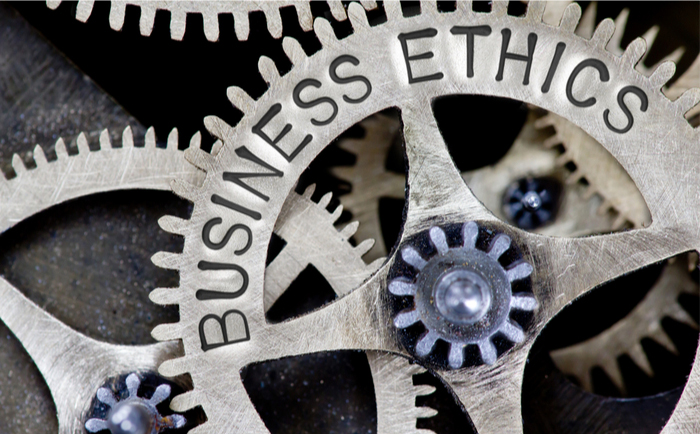Books about race and anti-racism have dominated bestseller lists in the past few months, bringing to prominence authors including Ibram Kendi, Ijeoma Oluo, Reni Eddo-Lodge, and Robin DiAngelo.
Sales of these books increased by up to 6,800% in the aftermath of global protests against racial injustice, according to Forbes, showing the role such work plays in raising awareness and leading to a cultural reckoning.
While readers learned about allyship, companies also showed their strengthened resolve to tackle racial inequality by making public statements on their social media accounts, and releasing detailed action plans with their commitments to change.
It is still too early to say what affect these individual and collective actions will have in the long term, and whether reading books on anti-racism and making public statements will result in a more just society where everyone has access to the same opportunities and is treated fairly.
But what we do know is that lasting, positive change is difficult to achieve without deliberate, sustained effort informed by reliable data that is free from bias. And it’s important not to underestimate the role cognitive bias can play in undermining these efforts—and to stay vigilant in spotting and mitigating it.
What is cognitive bias?
Human brains are hardwired to take shortcuts when processing information to make decisions, resulting in “systematic thinking errors”, or unconscious bias.
When it comes to influencing our decisions and judgments around people, cognitive or unconscious bias is universally recognised to play a role in unequal outcomes for people of colour.
This helps to explain why unconscious bias training is often the first resort for companies looking to build more inclusive workplaces, with outcomes that may be highly variable and, at times, result in little measurable improvement.
These three cognitive biases are likely to be at play and could influence our decisions:
1. Moral licensing
This is when people derive such confidence from past moral behaviour that they are more likely to engage in immoral or unethical ways later.
In a 2010 study, researchers argued that moral self-licensing occurs “because good deeds make people feel secure in their moral self-regard”, and future problematic behaviour does not evoke the same feelings of negative self-judgment that it otherwise would.
Participants who had voiced support for US President Barack Obama just before the 2008 election were less likely, when presented with a hypothetical slate of candidates for a police force job, to select a Black candidate for the role.
As the study authors hypothesise, “presumably, the act of expressing support for a Black presidential candidate made them feel that they no longer needed to prove their lack of prejudice”. Other research shows that implicit and explicit attitudes toward African Americans did not substantively change during the period of the Obama presidency.
Moral licensing may help explain the limitations of corporate unconscious bias training in creating an anti-racist work environment, an effect which has already been observed when it comes to tackling gender inequality.
Iris Bohnet, a behavioural economist, suggests that “diversity programs aimed at influencing the worst offenders might backfire… Training designed to raise awareness about gender and race inequality may end up making gender and race more salient and thereby highlighting differences.”
2. Affinity bias
This is our tendency to get along with others who are like us, and to evaluate them more positively than those who are different. Our personal beliefs, assumptions, preferences, and lack of understanding about people who are not like us may lead to repeatedly favouring “similar-to-me” individuals.
In organisations, this often affects who gets hired, who gets promoted, and who gets picked for opportunities to manage people or projects.
Employees who look like those already in leadership are given opportunities to develop their careers, due to affinity bias, resulting in a lack of representation in senior leadership roles for BIPOC (Black, Indigenous and People of Colour).
Affinity bias is particularly insidious in recruitment processes, where it presents as a lack of “culture fit”, an ambiguous evaluation that should be avoided as an explanation for declining to hire a candidate.
Many hiring managers have a hard time articulating their organisation’s specific culture, or explaining what exactly they mean when they say “culture fit”, leading to this being misused to engage employees that managers feel they will personally relate to.
3. Confirmation bias
This is the tendency to seek out, favour, and use information that confirms what you already believe. The other side of this is that people tend to ignore new information that goes against their preconceived notions, leading to poor decision-making.
It can hinder efforts to create and nurture an antiracist workplace culture, and also contributes to the limited effectiveness of unconscious bias training, together with moral licensing and affinity bias.
Many people’s perceptions of others with different identities and with whom they have limited interaction, is strongly influenced by media depictions and longstanding cultural stereotypes.
For example, a 2017 study published in the American Psychological Association’s Journal of Personality and Social Psychology found that people tended to perceive young Black men as taller, heavier, and more muscular than similarly sized white men, and hence more physically threatening.
Persistent notions about female or BIPOC candidates being inherently less qualified than white male candidates can undermine efforts to increase diversity, because such candidates are more likely to be negatively evaluated and ultimately not selected.
Confirmation bias also helps to explain why Asian Americans are underrepresented in leadership positions despite outperforming other minorities and white people in the US on education, employment and income. Long-held stereotypes lead to Asian Americans being seen as modest, deferential, and low in social skills, while at the same time penalising those who adopt more dominant behaviours.
How to overcome unconscious bias
1. Change systems, not individuals
The main reason unconscious bias training programmes fail to have the desired effect in creating lasting change, is that they are focused on changing individual behaviours while leaving largely untouched the systems that enabled those behaviours to thrive.
Individual biases are difficult to shift in the long term, and the academic evidence suggests that knowing about bias does not result in changes in behaviour by managers and employees.
The whole social environment—rather than the individual—needs to be addressed. This can be done by implementing company policies and programmes designed to mitigate bias through all stages of the employee’s journey, from selection processes to performance ratings and promotion decisions.
These structures, which should be audited regularly, are important in ensuring that any individual’s own bias is limited and does not influence decisions at an organisational level.
Such structural initiatives may end up influencing social norms within organisations, so behavioural change happens on a larger group level, leading to improved compliance from individuals as they gain a new understanding of socially acceptable behaviour.
2. Slow down and act deliberately
Bias is most likely to affect decision-making when decisions are made quickly, according to Stanford University psychology professor Jennifer Eberhardt, who studies implicit bias in police departments.
We are less likely to act on bias when we slow down and control our thoughts, consciously overcoming first impressions and the biases that come with them.
This is where unconscious bias training may have an impact, because self-awareness and education are key to shifting mindsets. Such mindset shifts are needed for people of colour as well, as research shows that they are equally subject to the unconscious bias provoked by negative stereotypes.
At work, slowing down may take the form of ensuring that one person’s biases do not contaminate processes through establishing control mechanisms: ensuring a diversity of feedback givers during recruitment processes, and establishing structured interviews with the same set of defined questions and evaluation criteria for each candidate.
3. Set concrete goals and work towards them
Data is essential to making real progress on diversity goals, and especially important when it comes to mitigating the effects of bias because it provides an objective measure of what has improved—or worsened—over time.
The goals themselves will be specific to each organisation’s needs and context. But taking into consideration local variables such as countries of operation, company size, business goals, and organisational culture, setting goals and tracking progress in a transparent way ensures the environmental change (as opposed to individual) that is needed for success.
Data is key to buy-in, and companies can increase accountability by collecting and analysing data on diversity over time, comparing the numbers with those at other organisations, and sharing them with key stakeholders internally and externally.
Data collection also helps companies identify roadblocks, and engage with key stakeholders on strategies to address them.
Adwoa Bagalini is engagement, diversity and inclusion lead at the World Economic Forum. The views expressed in this article are those of the author alone and not the WEF.
This article first appeared on the World Economic Forum website and is reproduced here with permission under a Creative Commons licence. Read the original article.





